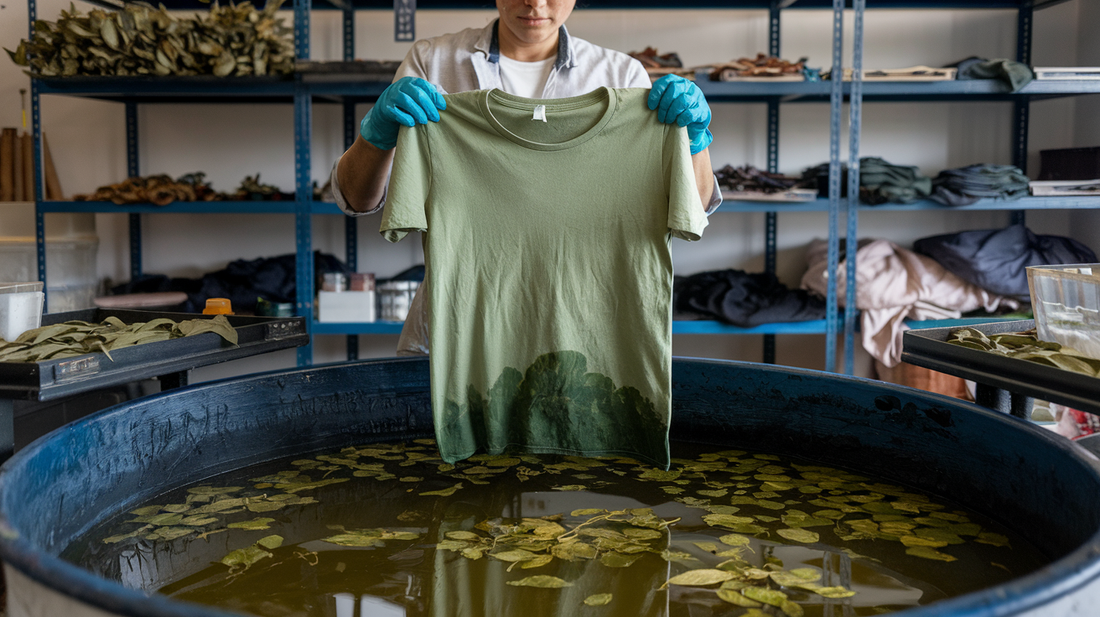In a world increasingly focused on sustainability, consumers and businesses alike are seeking greener ways to produce, sell, and purchase products. Print-on-demand (POD) is a business model that has quickly become popular for its flexibility and customization options, especially for clothing, accessories, home decor, and other personal goods. But aside from its business appeal, print-on-demand offers several significant environmental advantages over traditional manufacturing and retail practices. Here’s a closer look at how POD products contribute to a more sustainable future.
1. Reduced Waste Through On-Demand Production
One of the major environmental issues in traditional retail is the overproduction of goods, which often leads to massive amounts of unsold inventory. Clothing companies, in particular, produce items in bulk to meet anticipated demand. When these items don’t sell, they often end up in landfills or are incinerated, resulting in an enormous waste of materials and resources.
Print-on-demand reverses this process by producing items only after an order is placed. This on-demand production model ensures that only what is needed is created, effectively eliminating the waste generated by unsold inventory. According to recent studies, around 85% of all textiles produced by the fashion industry end up in landfills each year. POD drastically reduces this environmental burden by limiting production to what’s necessary.
2. Lower Carbon Emissions from Streamlined Operations
In traditional supply chains, products are often manufactured overseas in large quantities, shipped to warehouses, and then distributed to stores or directly to customers. This complex supply chain requires significant amounts of transportation and logistics, contributing to high carbon emissions.
POD, on the other hand, operates on a more localized model. Many POD companies use a network of facilities around the world to produce and ship items closer to the customer, reducing the overall travel distance. Additionally, with no need for warehousing or constant transportation of large batches of products, POD minimizes carbon emissions associated with traditional production and distribution processes.
3. More Sustainable Material Usage
POD companies frequently offer eco-friendly material options, such as organic cotton, recycled polyester, and water-based inks. Traditional mass production often prioritizes cost savings over material quality or sustainability, which can lead to using cheap, non-biodegradable materials that are harmful to the environment. In contrast, POD companies often collaborate with suppliers who share a commitment to sustainable materials and ethical production practices.
By selecting options like organic and recycled fabrics, businesses using POD can reduce the demand for virgin materials and harmful chemicals in production. Even the inks used in POD are often water-based and non-toxic, making them safer for the environment and reducing harmful runoff during the printing process.
4. Energy Efficiency in Digital Printing Processes
POD relies on digital printing technology, which is inherently more energy-efficient than traditional methods like screen printing or dyeing. Screen printing requires multiple steps, with energy-intensive processes such as heating, drying, and the creation of screens and dyes. Digital printing, by comparison, requires less energy and fewer materials, allowing companies to produce customized products without the environmental cost of traditional manufacturing.
Additionally, digital printing allows for greater flexibility in design, reducing the need for reprints and redesigns, which also conserves resources and energy. This efficient approach helps make POD a more sustainable choice in terms of resource usage.
5. Minimal Water Usage and Less Pollution
Traditional textile and product manufacturing processes are often water-intensive and can lead to water pollution. Dyeing fabrics, in particular, consumes vast amounts of water and discharges harmful chemicals into water supplies, negatively affecting local ecosystems.
POD typically involves digital and direct-to-garment (DTG) printing methods that require far less water than conventional manufacturing. With DTG, only the ink is applied directly to the fabric, with little or no need for water-intensive washing or rinsing. Additionally, the inks used in digital printing are often free from harmful chemicals, further reducing the pollution associated with textile production.
6. Supporting Small, Sustainable Businesses
The print-on-demand model empowers small businesses, artists, and entrepreneurs to create and sell products without the need for large upfront investments. Many of these creators prioritize sustainable practices, choosing eco-friendly products and materials for their designs. With the freedom to select sustainable options, POD businesses often support ethical suppliers and contribute to a more transparent and sustainable supply chain.
Additionally, by supporting POD companies, consumers contribute to a smaller, more localized economic ecosystem, which is less resource-intensive and more community-focused than large-scale manufacturing.
7. Encouraging Conscious Consumerism
The POD model aligns with the growing trend of conscious consumerism, where people are more mindful of the environmental impact of their purchases. Since POD items are typically made-to-order, customers may think twice before buying, reducing impulse buys and unnecessary consumption. By fostering a mindset of “buy only what you need and love”, print-on-demand products encourage a more intentional approach to purchasing, which can lead to reduced waste and more thoughtful consumption patterns.
Final Thoughts
Print-on-demand offers more than just a customizable shopping experience—it provides a path toward a more sustainable and environmentally friendly retail model. By reducing waste, minimizing carbon emissions, using eco-friendly materials, and supporting small, sustainable businesses, POD contributes to a greener and more sustainable world. For eco-conscious consumers and businesses, choosing print-on-demand products isn’t just a smart decision; it’s an impactful one for the future of our planet.
As the POD industry continues to grow and adopt even more sustainable practices, it stands as an example of how technology and innovative business models can help address environmental challenges. So the next time you order a custom T-shirt or a personalized phone case, know that your choice in POD is helping to make a positive difference for the environment.

